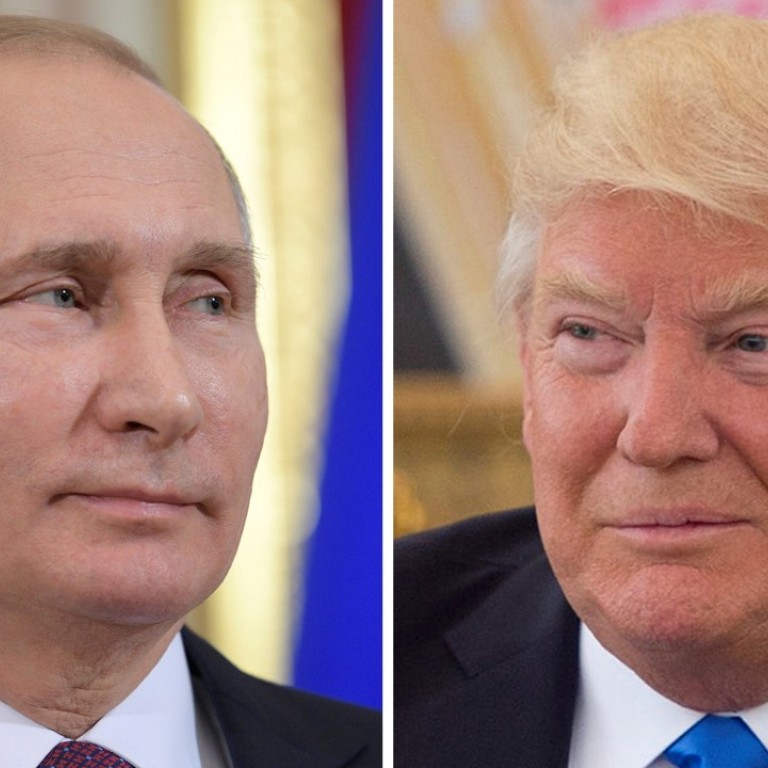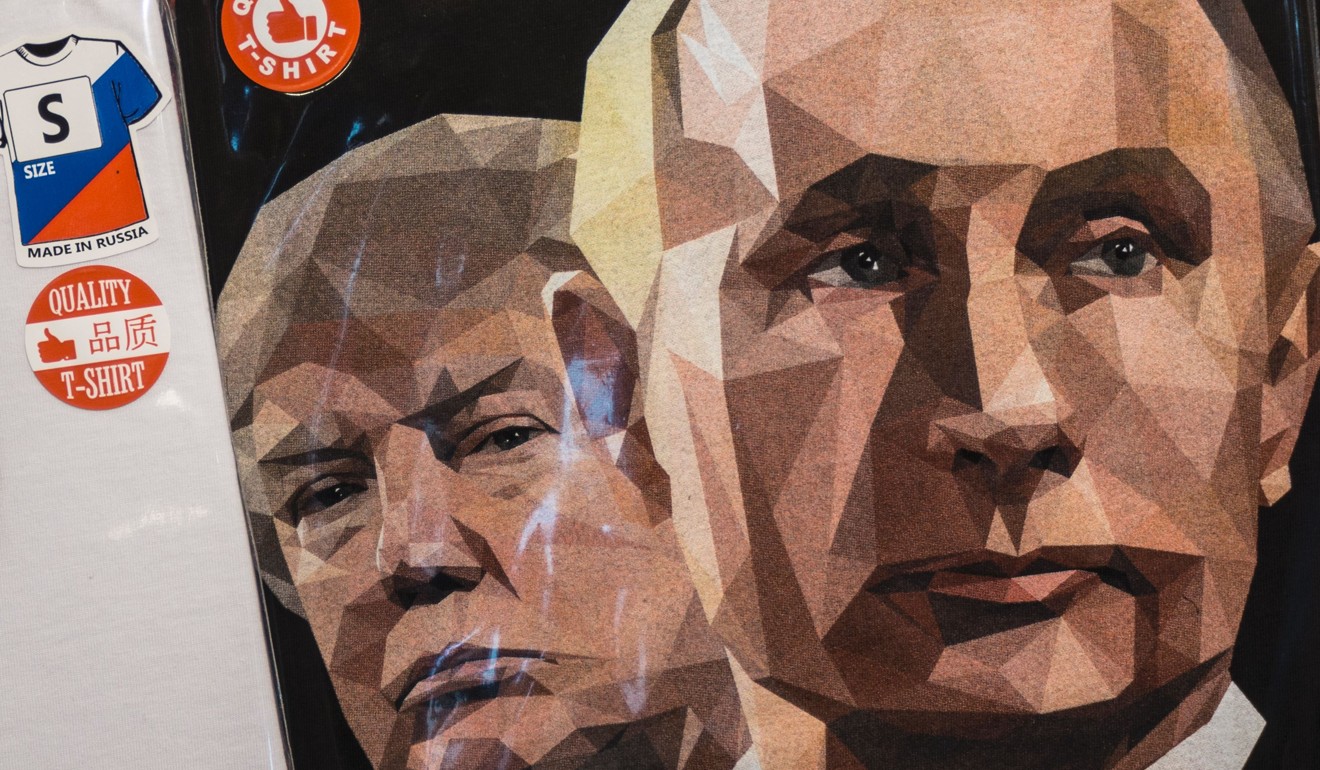
Will Trump have the stomach to confront Putin over US election meddling when they meet next week?
US President Donald Trump heads into his meeting with Russian President Vladimir Putin with one question looming large: how much is he willing to confront the man whose meddling in the 2016 election may have helped him win?
The encounter scheduled for the sidelines of next week’s G-20 summit in Germany comes amid a widening US federal investigation into possible collusion between Trump associates and the Russian government. Trump last week gave a rare explicit acknowledgment of the Kremlin-directed effort to disrupt the US presidential campaign.
National Security Adviser H.R. McMaster told reporters Thursday there was no set agenda for the meeting, and he didn’t know whether the president planned to raise the issue of electoral interference.
But for Trump, who remains a foreign policy novice, the encounter could prove a defining moment in his presidency. Five months after becoming commander-in-chief, he’s now responsible for confronting foreign efforts to undermine national security.
While Trump referenced Russia’s meddling in the US election on June 23, he did so by blaming his predecessor in a series of tweets for not having done more to stop the interference. He followed that up on Monday with a tweet that former President Barack Obama’s inaction amounted to obstruction or collusion, two accusations that Trump’s critics have directed at him.
During next week’s Group of 20 meeting in Germany, Trump will be under intense pressure to demonstrate that he’s not the Putin “puppet” Democratic opponent Hillary Clinton labelled him during the campaign. Not only will American voters and foreign leaders be watching, but so will a special counsel now examining whether Trump tried to impede the Russia investigation.
The Trump administration hasn’t taken any new steps to punish Russia over the political interference since entering office, and it has taken only modest action to shore up the nation’s election system against future manipulation by foreign adversaries.

The panel is examining “everything from voter fraud here domestically to possible hacking by foreign governments,” senior adviser Kellyanne Conway told ABC News on Sunday.
But Trump appointed the commission to investigate his own unsubstantiated claim that 3 million ineligible immigrants cast ballots for Clinton, not to probe Russian meddling in the election. And critics say the administration hasn’t done enough to deter future interference.
“We have yet to see any strong statement from the current administration condemning what the Russians did and warning them not to do it again,” Obama’s Department of Homeland Security secretary Jeh Johnson said during a national security conference held at the US Capitol on June 22.
Aides say Trump’s foreign policy decisions refute accusations he is too cozy with Russia.
In Syria, the administration has maintained that Putin-ally Bashar Assad must leave power, and escalated US involvement there, bombing a Syrian airfield where the administration says a chemical weapons attack was launched. On Monday, the White House warned the Syrian regime would pay a “heavy price” if it mounted another chemical attack, saying the US had detected preparations for such an operation.
The Treasury Department meanwhile identified 38 additional individuals and entities subject to financial sanctions Obama imposed against Russia over its incursion into the Ukraine.
But Democrats argue Trump should use additional sanctions to punish Russia over the elections. Chuck Schumer, the Senate Democratic Leader, said in an interview Sunday with ABC News that “if Donald Trump wants to do something about Russia and Russia meddling, instead of just saying, ‘Obama didn’t do enough,’” he should support a measure introduced in the House to toughen penalties.
A White House official, speaking on the condition of anonymity to describe internal discussions, said the administration was concerned that the bill would restrict Trump’s freedom to conduct foreign policy and limit his ability to bargain sanctions relief for concessions from the Kremlin.

